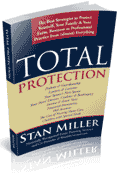Charitable Planning
Charitable giving is one of the most effective ways of changing the world. When creatively implemented, it is also an effective way to instill values in younger generation family members. To encourage charitable giving, the Internal Revenue Service has a complex set of tax breaks for different kinds of charitable giving. Taking advantage of those rules allows you and your charities to get more out of your giving.
The most common charitable gift is the direct gift of cash or property. But direct gifts often aren’t the most effective ways to give. That’s where charitable planning comes in. Through the use of estate planning techniques you and your charities can get more out of the giving you’re already doing or are planning to do. A few of the more common strategies are described below.
Charitable Remainder Trusts
This is an excellent planning tool and is useful in a variety of planning situations. One of the most common situations where a Charitable Remainder Trust (CRT) is used is in the sale of appreciated assets. A CRT pays you first and your charities second (ie. the charities get what’s left—the “remainder”). You get to use the property placed in the CRT for a number of years via an annuity payment from the trust. At the end of the annuity term, the remainder goes to your charities. Even though the charity receives its gift in the future, you will receive an immediate income tax deduction based on the projected future gift.This strategy works especially well with highly appreciated property because the CRT can avoid capital gains taxes on the sale.
There are many variations of CRTs with similar names (for example CRAT, CRUT, and NIMCRUT) that have slightly different terms. Payments can be made for a specific number of years or for the life of one or more people. And the annual payments can be fixed, based on a percentage of the assets, or based on the net income of the trust. There’s enough variety to fit just about any situation.
Charitable Lead Trusts
A charitable lead trust pays your charities first and your family second. Distributions are made to charities for a number of years, before any distribution is made to family members–hence the term “lead” trust. Unlike the charitable remainder trust, the charitable lead trust doesn’t give you an income tax deduction. Instead, the CLT allows you to make a gift to your beneficiaries but have it treated as a much smaller gift (or as no gift at all) for gift tax purposes. At the same time, it effectively allows you to bypass your charitable deduction AGI limit because gifts made by the CLT aren’t included in your limit.
A charitable lead trust can be very effective with property that will either produce significant income or appreciate rapidly in the future. All told, it’s a great way to make charitable gifts and pass extra income or growth onto your heirs estate and gift tax free.
Donor Advised Funds
A donor-advised fund allows you to create and name a fund, serve as its advisor, and recommend charitable distributions. Each gift to your Donor Advised Fund triggers an immediate tax deduction. The charity that administers the fund handles the legal, financial and administrative burdens, including writing grant checks and tracking results. As the fund’s advisor, you can take your time and focus on the fun part: recommending grants from your fund. To instill the value of giving, some grandparents establish client-advised funds and involve their grandchildren as advisors. In Arkansas, the Arkansas Community Foundation is an excellent resource for establishing a donor advised fund.
The Arkansas Baptist Foundation also has an excellent reputation for administering donor advised funds. Their focus is on funds that share the mission of the Baptist Church.
Other Charitable Planning Tools
There are many other charitable planning tools, and each can be the ideal solution in specific situations. For example:
- Charitable gift annuities
- Charitable life estates
- Private foundations and family foundations
Planned Giving is Good For Your Charity
Your favorite charities can get a significant boost from your charitable planning:
- Predictable future gifts made as part of an overall estate plan provides the charity with planning and budgeting certainty
- Charities can receive charitable gifts sooner—often during your lifetime, rather than waiting until you pass away
Good for You Too
While the income tax deduction provided by a charitable gift is often the initial motivator for making a charitable gift, charitable planning can do much more for you:
- Make gifts that effectively allow you to exceed the charitable deduction AGI limit, while helping your family at the same time
- Avoid future capital gains taxes by donating appreciated property with more leverage
- Make charitable gifts now while retaining the income that you need to support your lifestyle
You Don’t Have to Be Rich
Watch this inspiring video of a Mississippi washer woman who created a Charitable Remainder Trust with her $150,000 life savings and made the University of Southern Mississippi the remainder beneficiary.
Our Connections






ILP + The Book

It is possible to protect yourself, your family and your business or professional practice from the real threats that keep you up at night. The law provides more and better solutions than ever before in history. In this book, Stan explains in clear, understandable language how these powerful solutions can be deployed to protect what you have earned and built.
Available Early Summer 2015
ILP + The Webinar

In this hour-long webinar, Stan explains how to avoid probate and protect your heirs with a revocable living trust. You will learn how to protect your loved ones what many consider to be an expensive, lengthy, and unnecessary court process. You will also learn what a living trust is and why having a living trust will protect your children, grandchildren and other heirs.
Available Now









